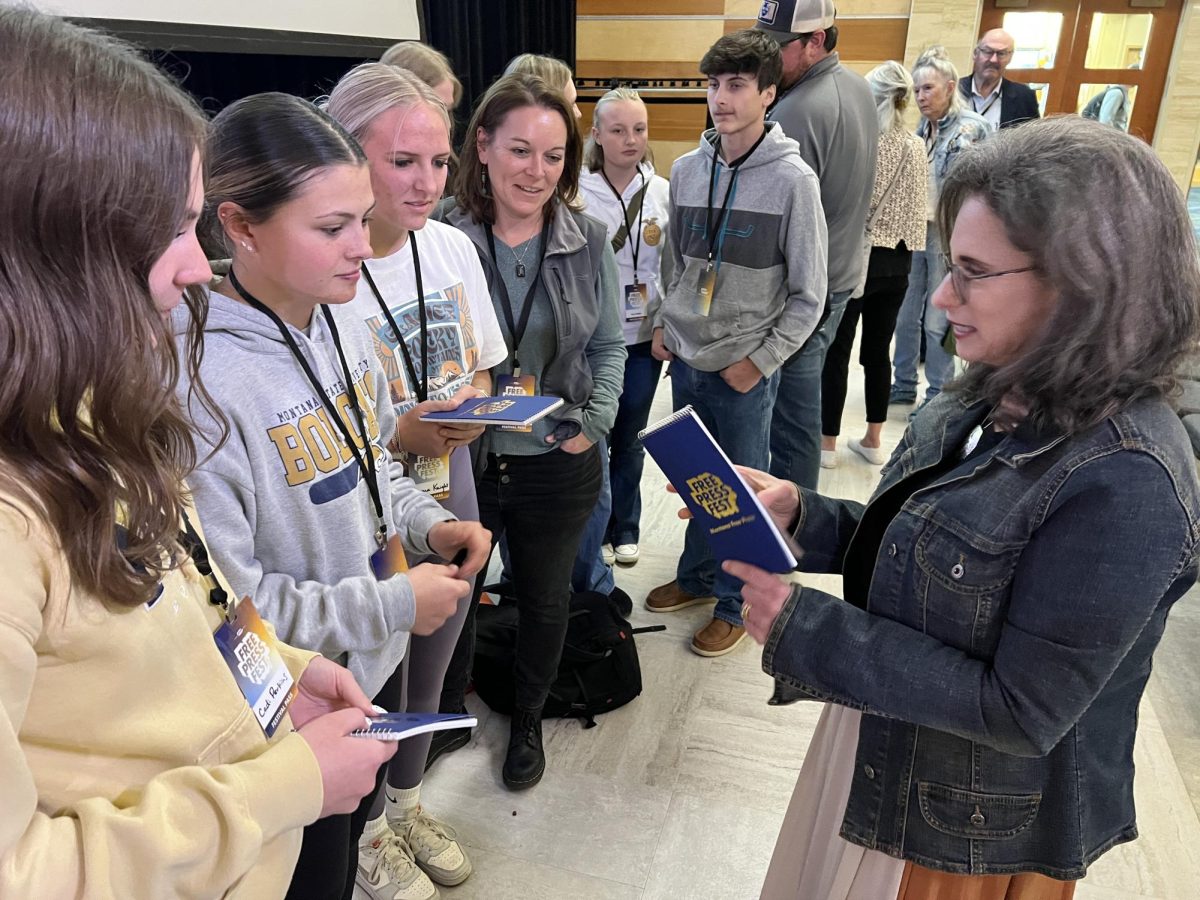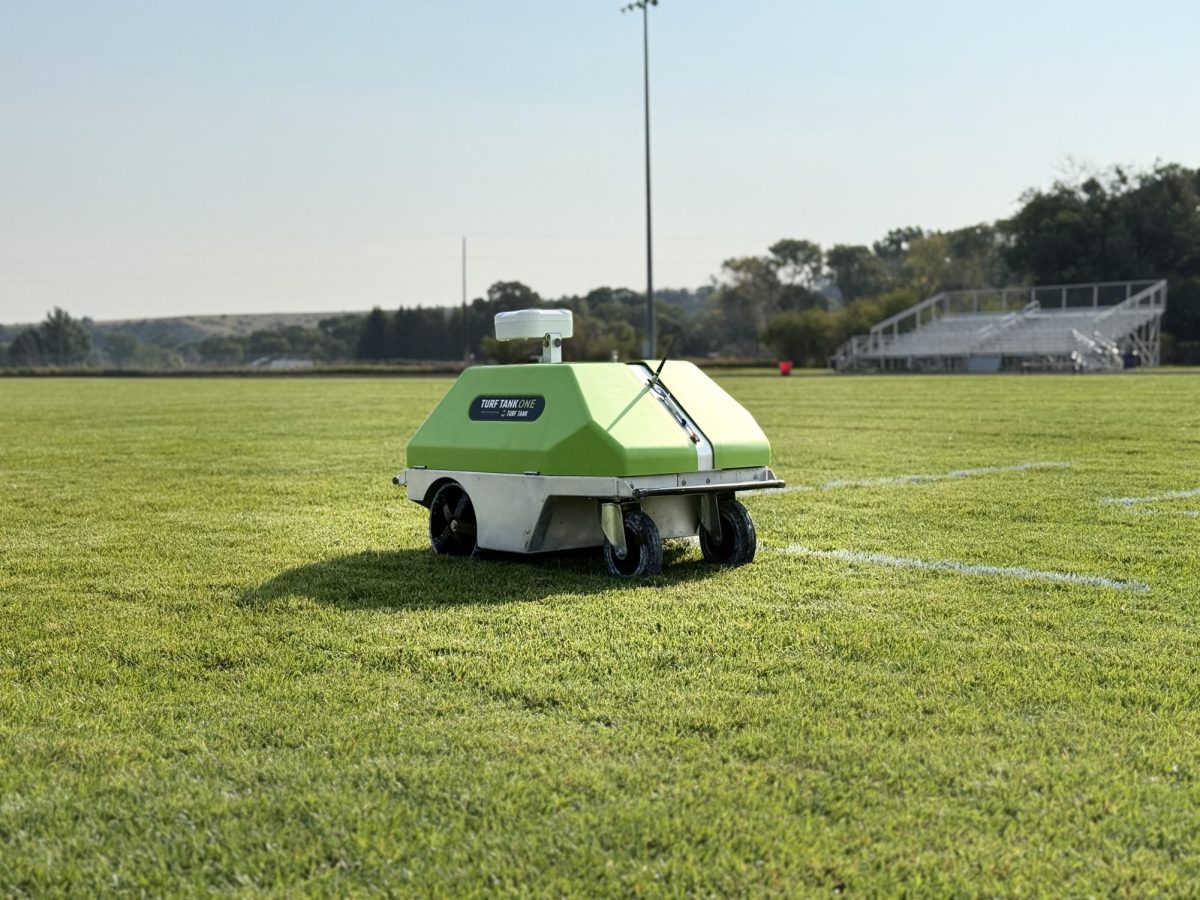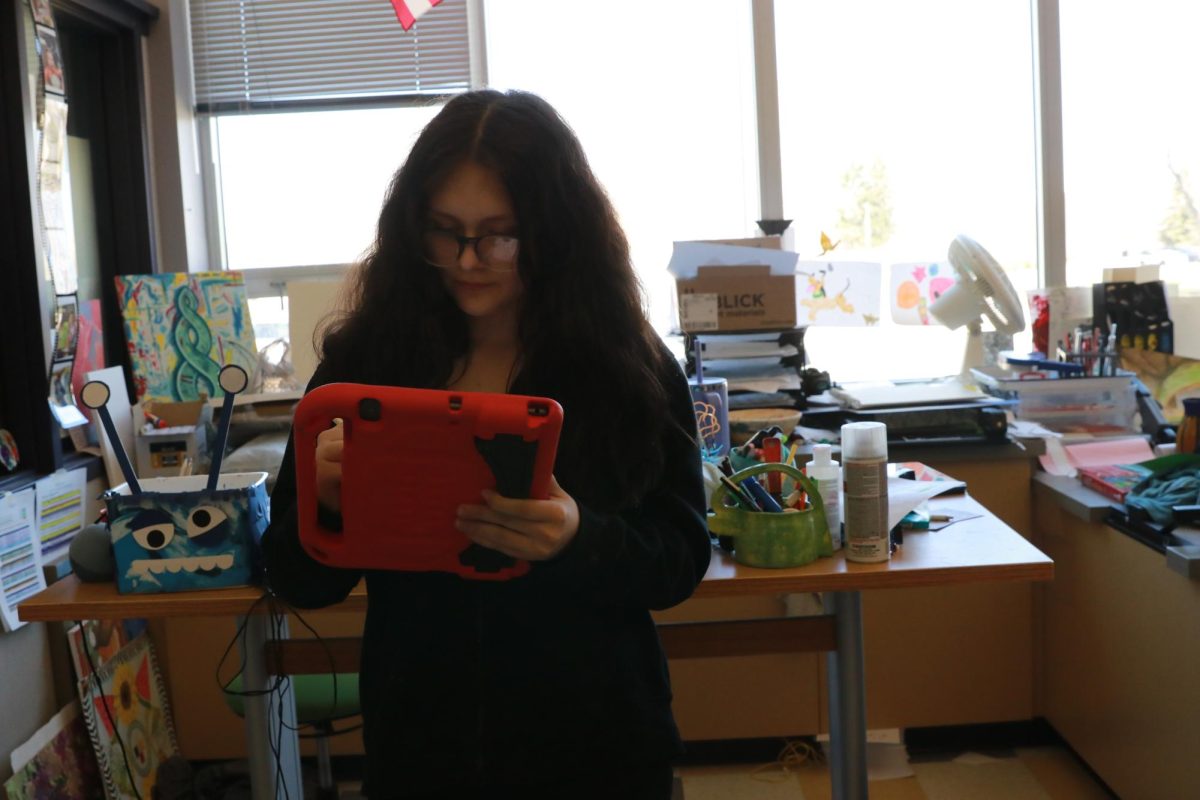Hand sanitizer, social distancing, masks, and COVID-19 tests—these words probably
remind you of the global pandemic that began on March 11, 2020. At the start of the
lockdown, families were sent home, and students of all ages had to switch to online
learning. This sudden change to virtual education opened up new ways for students to
engage with their studies, and it’s something that’s still affecting how we learn today.
Today, at our school with around 400 students, 59 are enrolled in online classes first semester, and two
of them are taking their courses completely off-campus. Many people, including our
school counselor Abby Kinsey, agree that the pandemic largely instigated the shift to
online learning. “COVID started the online movement because kids found that they liked it
more,” said Kinsey. Some students enjoy the flexibility of doing schoolwork from home at
their own pace, but it hasn’t come without some challenges, especially when it comes to
mental health.
During the pandemic, about 30% of students showed signs of depression, and stress
levels shot up by 50%. With so many students still doing online classes today, the question
to ask is, are online students still struggling with these mental health issues, or is there a
way to prevent them?
Gloria Lynch, a Park High senior who’s been taking online classes since her freshman year, has
averaged about four online courses each semester throughout high school. While she
enjoys the flexibility, Lynch has noticed her mental health decline when she isn’t able to
socialize or when she falls behind on assignments. “It can definitely be stressful,” she
said. “There’s a lot more work with online school because you’re basically your own
teacher, and you have to stay on top of everything.” For many part-time and full-time online
students, stress is the biggest challenge.
Students who are fully online may struggle with mental health even more because they
don’t have social interactions. “They’re not involved in any extracurricular activities at
school,” said Kinsey, pointing out how this lack of connection can lead to isolation.
Without regular face-to-face support, online students may feel disconnected, both
academically and emotionally. Kinsey suggests schools should provide more resources to
help these students, especially when it comes to academic support beyond their online
teachers.
Even with these struggles, online education has plenty of advantages, like flexibility,
variety, and the chance to take courses that might not be available at school. “As long as
you use online classes the right way, they can be really beneficial,” Lynch said. Online
classes are a great option for students looking to expand their education or take classes
that aren’t offered at school, but it’s important to find a balance between doing schoolwork
and socializing. “You have to be disciplined and stay organized, but it can be an amazing
way to learn,” said Lynch.







